What is composite number Definition of composite number YouTube

Composite Numbers
Composite number definition. Composite numbers can be defined as any positive integers or natural numbers that have more than two factors. These factors usually include 1 and itself, along with at least one other value. In other words, composite numbers are the opposite of prime numbers, numbers that only have two factors.
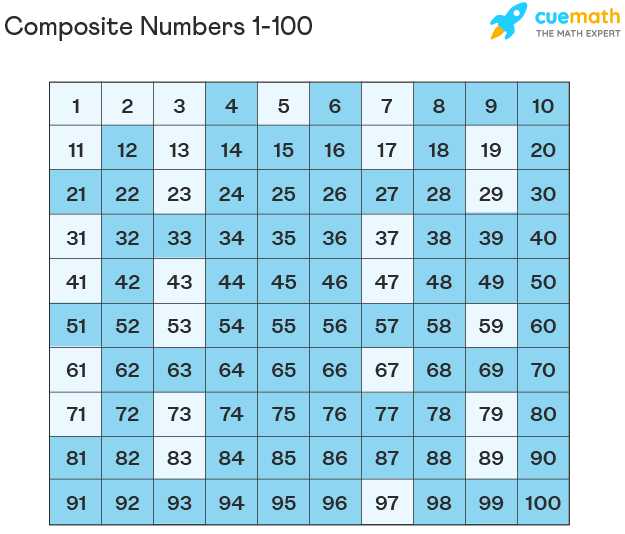
Composite Numbers 1 to 100 Chart, Composite Numbers between 1 to 100
The major difference between a prime number and composite number is that the prime numbers are only divisible by 1 and themselves, that is, such numbers have only two factors whereas composite numbers have more than two factors, that is, it is divisible by numbers other than 1 and itself also. Prime numbers can only be written in the form of a.

COMPOSITE NUMBER Definition, Examples & List of Composite numbers.
A group of natural numbers with three or more factors is referred to as a composite number. The smallest composite number is 4. We can write the composite numbers as the product of two or more prime numbers. Except for '2' all even numbers are composite numbers. A composite number that is the product of three different prime factors is.
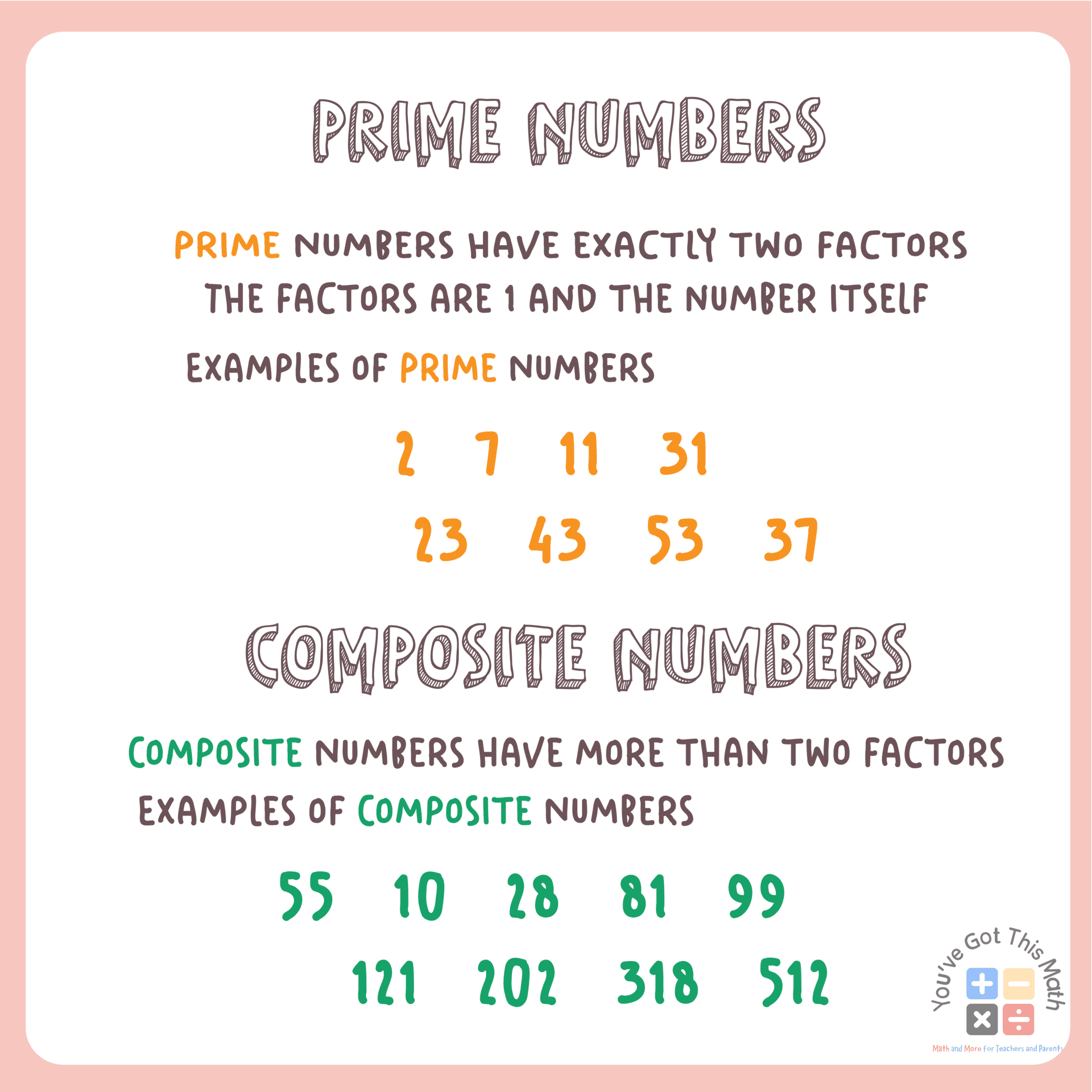
Composite Numbers Definition
Composite Number Definition. Composite numbers can be defined as any positive integers or natural numbers that have more than two factors. These factors usually include 1 and itself, along with at least one other value. In other words, composite numbers are the opposite of prime numbers, numbers that only have two factors.

Composite Numbers Definition, List 1 To 100, Examples
Composite numbers are those natural numbers greater than 1 and have more than 2 factors. For example, 4 has three factors 1, 2, and 4, thus a composite number. Again 6 has factors 1, 2, 3, and 6 and thus is also a composite number. Some other examples include 8, 9, 10, 12, 14 and 16. In contrast, numbers that are not composite are prime numbers.
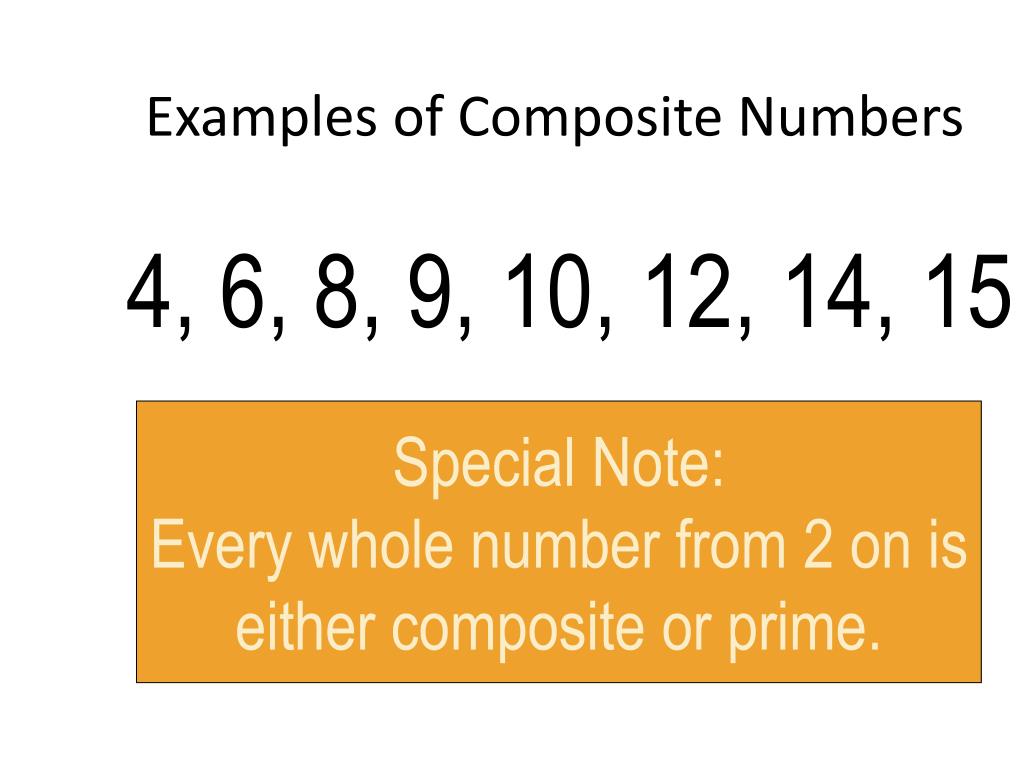
Composite Numbers
Types. One way to classify composite numbers is by counting the number of prime factors. A composite number with two prime factors is a semiprime or 2-almost prime (the factors need not be distinct, hence squares of primes are included). A composite number with three distinct prime factors is a sphenic number.In some applications, it is necessary to differentiate between composite numbers with.
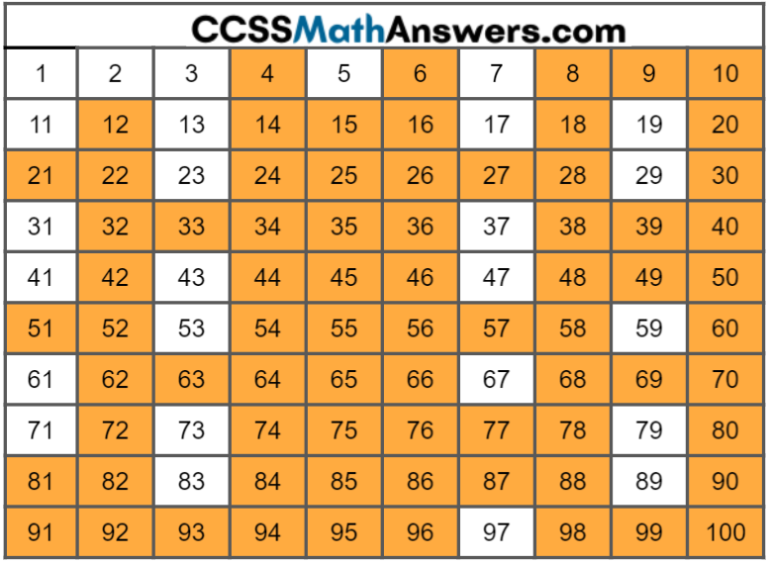
Composite Number Definition, Types, Properties, Examples Composite
Composite Numbers Solved Examples. Que 1: Check whether 458 is a prime number or a composite number. Ans 1: Given that: We need to check if 458 is a prime or a composite number. We will check the divisibility of the number using a simple divisibility test for 2. As the unit's place of 458 is 8, which is an even number.
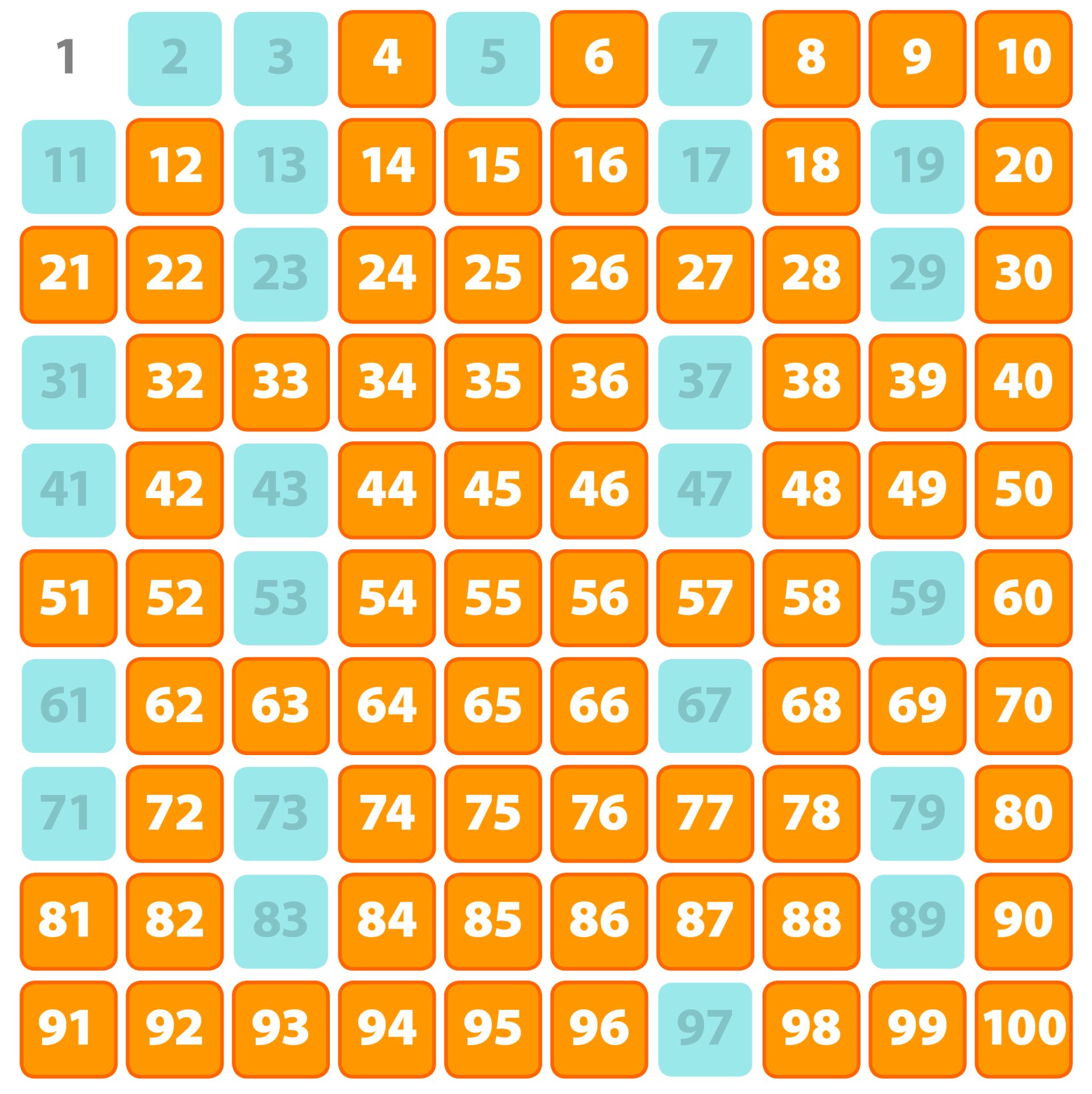
Composite Number Definition For Kids DK Find Out
The examples of composite numbers are 6, 14, 25, 30, 52, etc, such that: In all the above examples, we can see the composite numbers have more than two factors. There are a number of composite numbers we can list out of a set of natural numbers from 1 to 1000 or more. Let us see the list of composite numbers in the next section.

Composite Number Definition, Types, Properties, Examples Composite
These numbers are greater than 1 and have divisors other than 1 and the number itself, classifying them as composite numbers. Types of Composite Numbers. Composite numbers can be classified into different types based on their specific properties or characteristics. But the two main types of composite numbers: Even Composite Numbers:
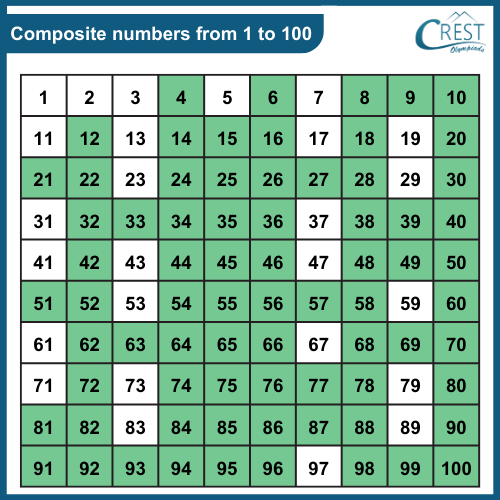
List of Composite Numbers from 1 to 100 CREST Olympiads
Composite Number - Definition. A composite number is a positive integer that can be formed by multiplying two small positive integers. In maths, composite numbers are the type of natural numbers that have more than three factors. The natural numbers that are not prime numbers are called composite numbers. Example: 4, 6, 8, 9 are the composite.

What are Composite Numbers? Definition, List, Examples and Facts (2022)
A composite number is typically a positive integer created by multiplying two positive integers smaller than the composite number. Take note of the following properties of composite number: All composite numbers are equally divisible by smaller numbers, which may or may not be prime. All composite numbers are composed of at least two prime numbers.
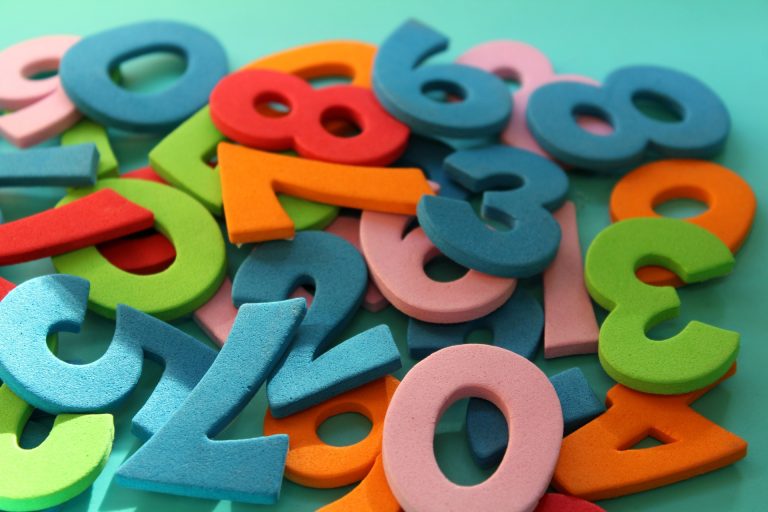
What Are Composite Numbers? The Definition And Differences
Solved Examples on Composite Numbers. 1. Check if 104 is a composite number or not. The given number 104 is divisible by 2 and hence have more than 2 factors. Therefore, it is a composite number. 2. Check if 111 is a composite number. The given number is divisible by 3 and hence have more than 2 factors. Therefore, it is a composite number.
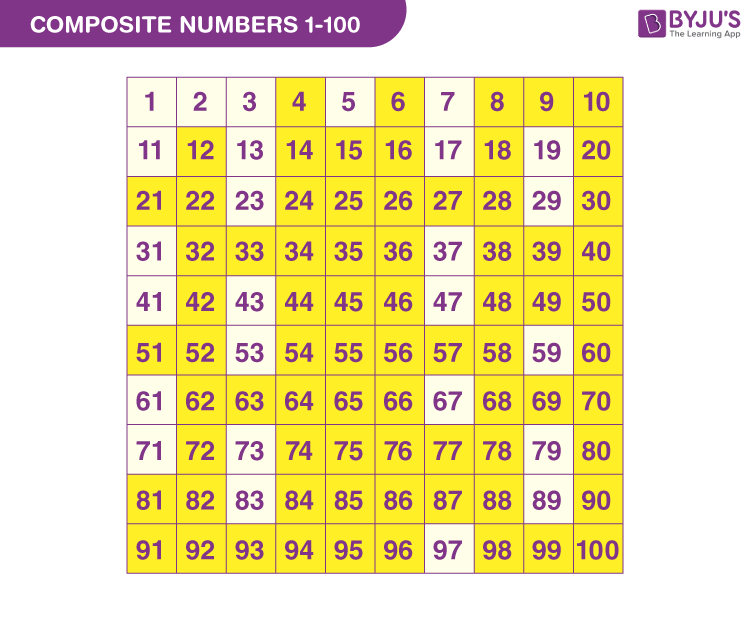
Composite Numbers Definition, List, Properties and Examples
Some common types include: Even composite numbers: These are composite numbers that are also even, meaning they can be divided evenly by 2. Examples: 4, 6, 8, 10, 12. Odd composite numbers: These are composite numbers that are also odd, meaning they cannot be divided evenly by 2. Examples: 9, 15, 21, 25, 27.

Math number definitions prime composite multiples factors and
The composite numbers are the set of natural numbers which has more than two factors. The number 4 is the smallest or least composite number. Every composite number can be written as the product of two or more prime numbers. Each composite number is a factor of itself.
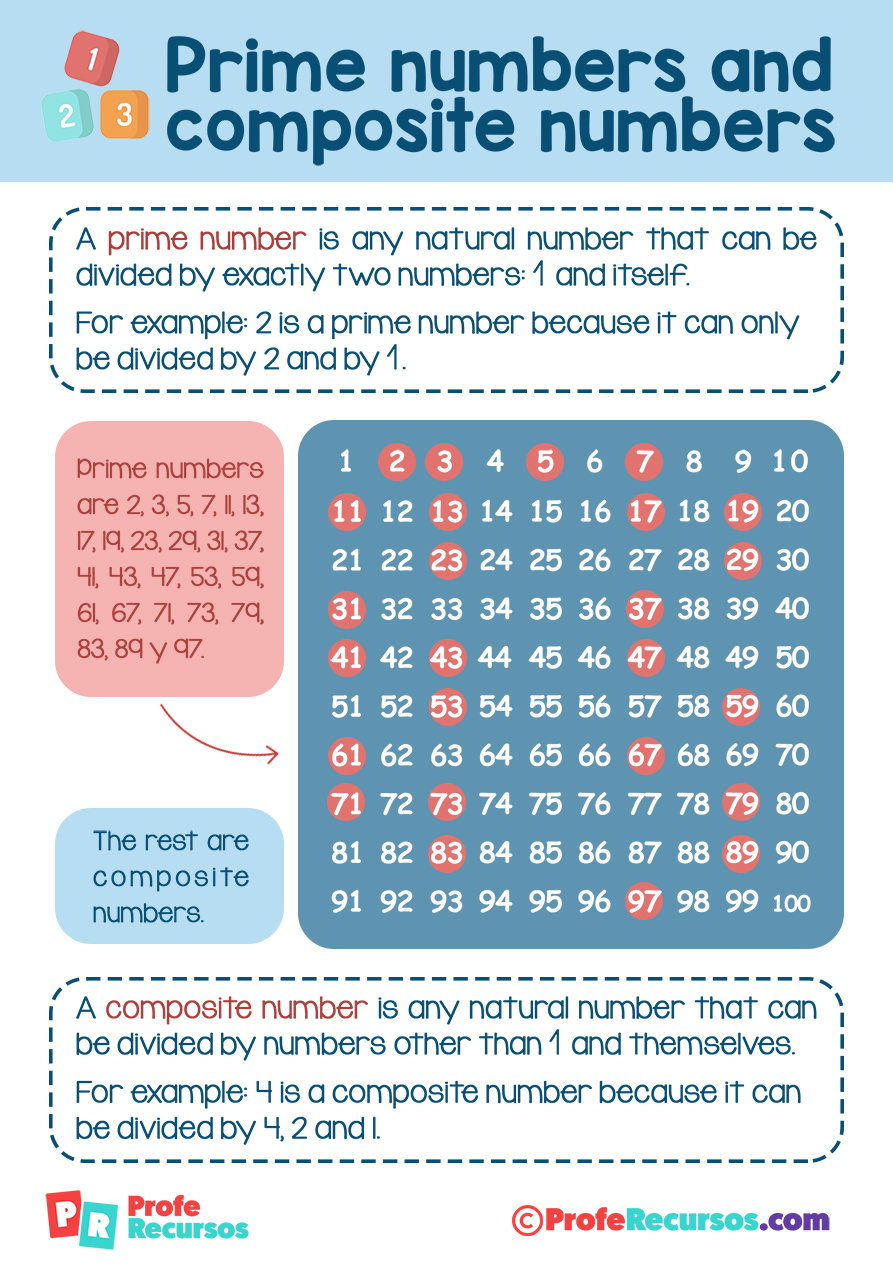
Prime and Composite Numbers
By contrast, a composite number has more factors than 1 and itself; in other words, a composite number has more than two factors. The smallest composite number is 4, with factors of 4, 1, and 2.

What is composite number Definition of composite number YouTube
Properties of Composite Numbers. Various properties of composite numbers that are very useful for students are, Composite numbers consist of more than two factors. Each composite number is one of its own factors. Of all composite numbers, 4 is the smallest. Composite numbers can be divided evenly by smaller numbers, either prime or composite.